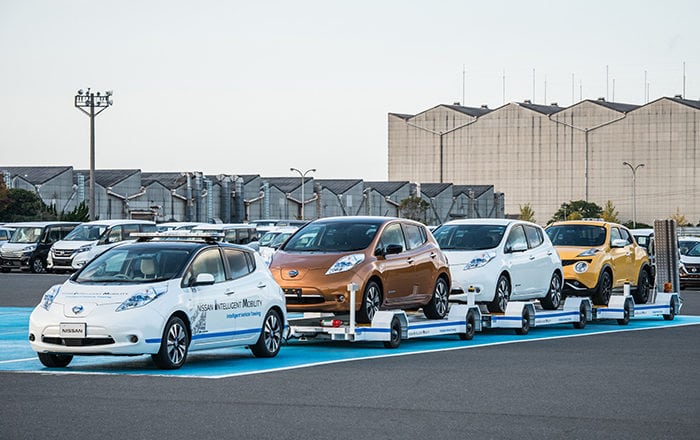Nissan has introduced Intelligent Vehicle towing (IVT), a fully automated vehicle towing system to be used at its Oppama Plant in Japan. The IVT system uses a Nissan LEAF modified with the company’s prototype autonomous driving system and the newly-developed IVT. It will tow trailers and vehicles around the plant to designated loading and unloading points.
The system is a step forward from conventional automated guided vehicles that deliver parts and supplies, the IVT system requires no magnetic tape or rails. The car is autonomous, driving itself, and delivery points are designated by location and found by the vehicles navigation system via mapping and communications with facility systems.
The towing car is equipped with an array of cameras and laser scanners that detect lane markings, curbs and potential obstacles or hazards around the vehicle. By cross-referencing this information with map data, the towing car calculates its own location, negotiating the route to its destination unaided.
The towing car travels within the speed limits of the factory, and automatically stops if it detects an obstacle or hazard ahead, before setting off again when it has determined that the road ahead is clear.
A central traffic control system monitors the location and speeds of all IVT-equipped vehicles and can be used to make changes to drive routes or pickup/dropoff locations as required.
Nissan is using the system as a test bed for its ongoing autonomous vehicle development.
Aaron is an automotive journalist living in Wyoming, USA. His background includes technology, mechanics, commercial vehicles, and new vehicle evaluations. Aaron is a member of several automotive media groups and writes for many well-known publications.

